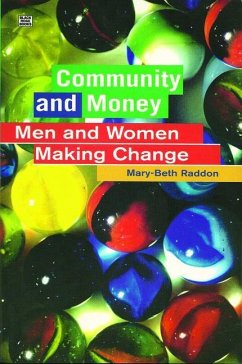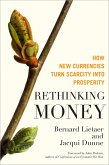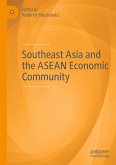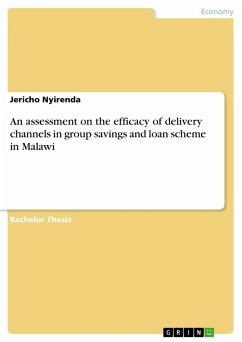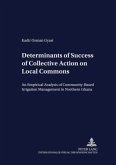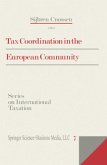At the beginning of the 21st century, the three most important concerns in the developed nations are remarkably convergent-unemployment, the environment, and community breakdown-and there are strong indications that these same issues will remain on top of the agenda well into the next century.
Emerging technologies promise to keep unemployment a major issue, even if all Western economies get out of recession. By 2010, China will introduce as much carbon dioxide into the atmosphere as the entire world does today. And community breakdown is one of the most systemic, deep, and complex societal trends of the past 30 years, with no signs of any reversal.
Precisely because we will have to live with these issues for the foreseeable future, only a long-term structural approach can successfully resolve these problems. "Community and Money "is about how community currencies could contribute to tackling all three problems.
Local currencies are springing up all over the world in an impressive diversity and increasing sophistication. In more than 65 different places in the United States and Canada you can earn and use colorful bills with names like Barter Bucks and Time Dollars for anything from buying groceries to having your hair cut or your computer repaired.
Using communities in Ontario and New York State as models, this book, through a combination of theory, practical implementation, and personal interviews, offers a guide to some very attractive alternatives to traditional currency transactions, the goal of which is to encourage Ýrešlocalization of the production of wealth, consumption, and exchange; fairly remunerate work that is un- or under-paid; and build a sense of communitythrough personalized, face-to-face transactions.
Mary-Beth Raddon holds a Ph.D. in sociology from the University of Toronto, Ontario, and has contributed to both the research and the debate around the new economy.
Emerging technologies promise to keep unemployment a major issue, even if all Western economies get out of recession. By 2010, China will introduce as much carbon dioxide into the atmosphere as the entire world does today. And community breakdown is one of the most systemic, deep, and complex societal trends of the past 30 years, with no signs of any reversal.
Precisely because we will have to live with these issues for the foreseeable future, only a long-term structural approach can successfully resolve these problems. "Community and Money "is about how community currencies could contribute to tackling all three problems.
Local currencies are springing up all over the world in an impressive diversity and increasing sophistication. In more than 65 different places in the United States and Canada you can earn and use colorful bills with names like Barter Bucks and Time Dollars for anything from buying groceries to having your hair cut or your computer repaired.
Using communities in Ontario and New York State as models, this book, through a combination of theory, practical implementation, and personal interviews, offers a guide to some very attractive alternatives to traditional currency transactions, the goal of which is to encourage Ýrešlocalization of the production of wealth, consumption, and exchange; fairly remunerate work that is un- or under-paid; and build a sense of communitythrough personalized, face-to-face transactions.
Mary-Beth Raddon holds a Ph.D. in sociology from the University of Toronto, Ontario, and has contributed to both the research and the debate around the new economy.

